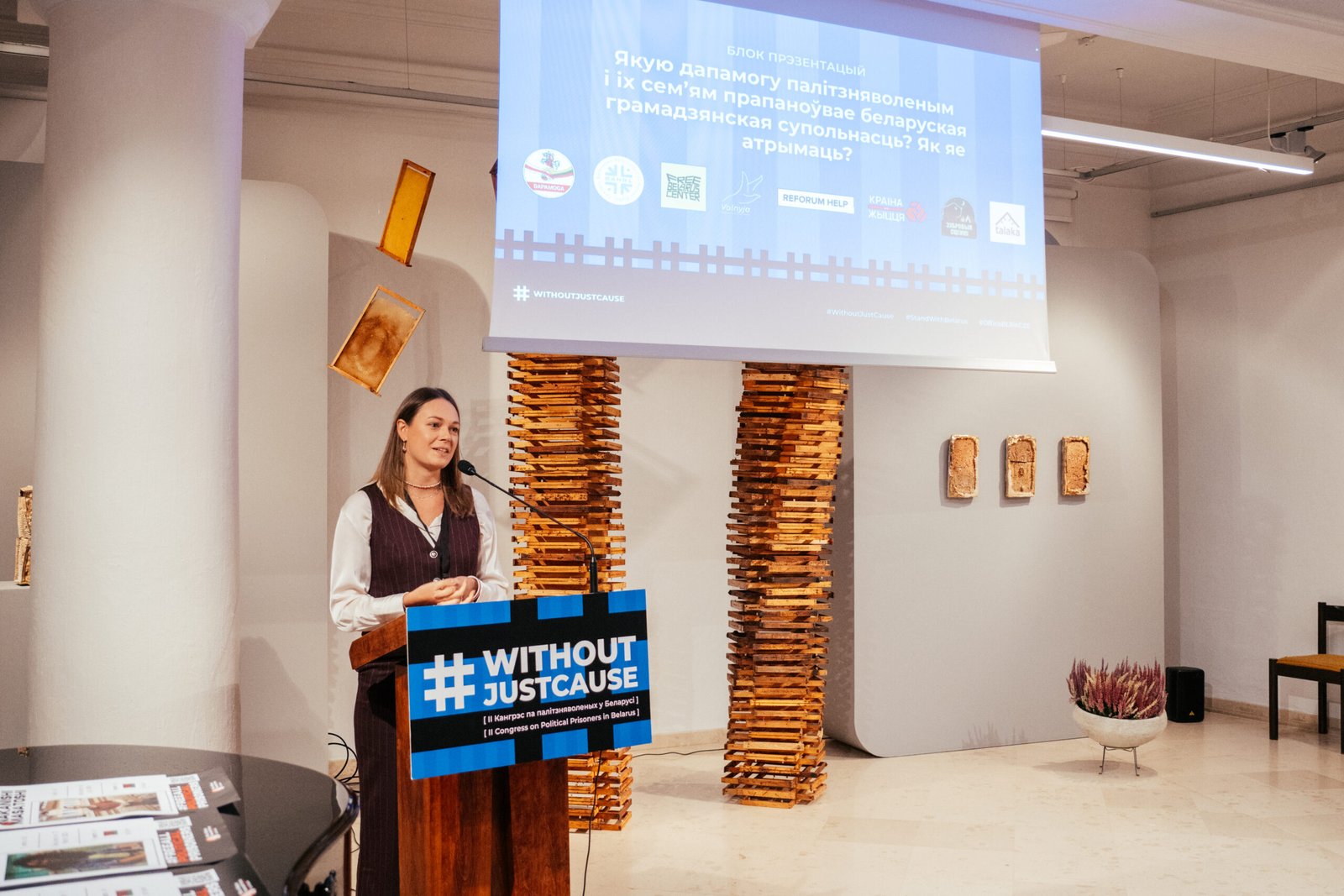Day Two of the Second Congress on Political Prisoners in Belarus took place in Poznań on September 28, with former prisoners and their families participating. Sviatlana Tsikhanouskaya’s Advisor on Legal Affairs, Leanid Marozau, and the United Transitional Cabinet Representative on Social Policy, Volha Zazulinskaya, delivered opening remarks.
Day Two served as a platform for Belarusian political prisoners to voice issues that are of particular importance to them. Discussions centered on the support still lacking for victims of the regime and on how to accurately present the issue of political prisoners in the media. Particular emphasis was placed on documenting the experience of political imprisonment and recording evidence of torture.
The Congress gathered representatives of 21 organizations, including associations of political prisoners, NGOs providing assistance, and human rights groups:
- Dapamoga;
- Belarusian Association of Human Rights Lawyers;
- Free Belarus Center;
- Volnyja;
- Reforum Help;
- A Country to Live in Foundation;
- Children’s Summer Camp “Zubrovyja Sciežki”;
- Talaka Association of Belarusians in Italy;
- International Committee for the Investigation of Torture in Belarus;
- Christian Vision;
- DissidentBY;
- Belarus 2020 Foundation;
- Napišy List Palitviaźniu (Write a Letter to a Political Prisoner);
- Viasna Human Rights Center;
- Association of Political Prisoners of Belarus (APB);
- Da Voli! Belarusian Association of Political Prisoners (BAP);
- the RE:BELarus Union of Belarusian Political Prisoners;
- the Union of Belarusian Women with the Experience of Political Imprisonment;
- others.
Journalist and writer Sieviaryn Kviatkouski presented his project Belarus.2020, dedicated to the Belarusian protests and issues of collective memory, to a broader audience for the first time. The Activity Fair also took place, with initiatives and foundations such as Napišy List Palitviaźniu, DissidentBY, A Country to Live in Foundation, Libereco, and others participating.
The event demonstrated that despite differences in views on the political crisis in Belarus and approaches to its resolution, the issue of political prisoners remains a unifying factor.
Political prisoners are a shared responsibility. Behind bars unjustly remain not only Belarusian citizens but also foreign nationals, which is why the problem is of international significance and requires a collective response.
We extend our sincere appreciation to the Lubrański Academy for hosting Day Two of the Congress. The event was moderated by Uladzimir Bulauski, a former political prisoner and cultural manager, and featured the participation of Andrzej Pryba, Director of the Centre for Axiology of New Technologies and Social Change at Adam Mickiewicz University.








